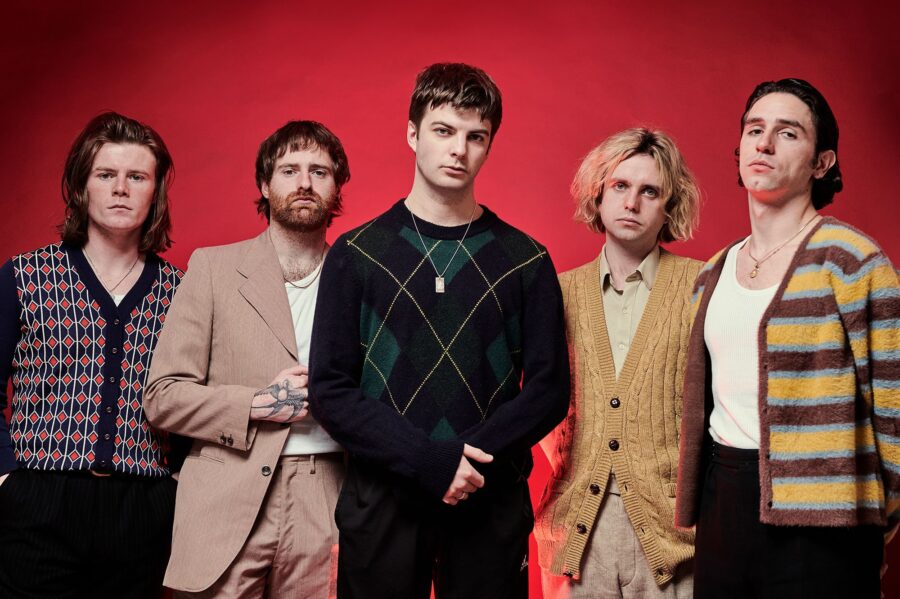The emergence and sustained success of Fontaines D.C. feels like a deliberate act of rebellion, a reclaiming of rock and roll’s raw, poetic core. Hailing from Dublin, this five-piece band has, in a remarkably short span, transcended local acclaim to command an international following, their visceral live performances and lyrically dense albums resonating with an audience hungry for something genuine amidst the digital noise. Their journey underscores a compelling narrative about the enduring power of authentic artistry in a hyper-mediated world, prompting a re-evaluation of what it means to be a successful rock band in the 21st century.
The Fertile Ground of Dublin and Poetic Roots
The genesis of Fontaines D.C. can be traced back to a shared appreciation for poetry and a burgeoning creative energy within Dublin’s vibrant, yet often overlooked, arts scene. Formed through a chance encounter between Grian Chatten, Carlos O’Connell, Conor Curley, Conor Deegan III, and Tom Coll at a poetry collective, the band’s initial explorations were deeply rooted in the spoken word tradition. This foundation is crucial to understanding their distinct approach to songwriting, where lyrical content often takes centre stage, painting vivid and unflinching portraits of urban life, existential anxieties, and the complexities of Irish identity. Early influences ranged from iconic Irish literary figures like James Joyce and Patrick Kavanagh to the raw energy of punk and post-punk bands, creating a unique sonic and lyrical DNA that set them apart from their contemporaries. This confluence of literary sensibility and musical grit provided fertile ground for the band’s initial EPs and their critically acclaimed debut album, Dogrel (2019), which captured the zeitgeist with its sharp observations and driving rhythms.
Navigating the Contemporary Music Landscape
Fontaines D.C.’s ascent coincides with a period of significant shifts in the music industry, marked by the dominance of streaming platforms, the fragmentation of genres, and the constant struggle for artists to cut through the digital clutter. Their success is particularly noteworthy given their commitment to a sound that is both rooted in tradition and fiercely contemporary. Eschewing heavily produced sounds and embracing a more stripped-down, live-oriented aesthetic, they have cultivated a reputation for intense and cathartic performances that have become a cornerstone of their appeal. Their subsequent albums, A Hero’s Death (2020) and Skinty Fia (2022), further solidified their position as a band unafraid to evolve, exploring darker sonic textures and more introspective lyrical themes while retaining the core intensity that defined their early work. These releases garnered international critical acclaim and commercial success, demonstrating their ability to connect with a global audience without compromising their artistic vision. Their consistent touring schedule across Europe, North America, and beyond has also been instrumental in building their dedicated fanbase, proving that in an age of digital consumption, the power of live music remains a vital force.
Critical Perspectives on Authenticity and Representation
The critical reception of Fontaines D.C. often revolves around discussions of authenticity and their representation of Dublin and Irish identity. Some critics have lauded their unflinching portrayal of the city’s underbelly and their nuanced exploration of cultural complexities, viewing them as a vital voice capturing the realities of contemporary Ireland. Their lyrics frequently delve into themes of displacement, economic hardship, and the lingering shadows of history, resonating with audiences who appreciate a more grounded and socially conscious form of rock music. However, other perspectives have raised questions about the potential for romanticizing working-class life or the risks of catering to a certain Western gaze that seeks out a particular brand of Irish authenticity. These debates highlight the inherent challenges in representing place and identity in art, particularly when an artist gains international recognition and their work is interpreted through diverse cultural lenses. Nevertheless, the critical discourse surrounding Fontaines D.C. underscores their significance as a band that provokes thought and engages with complex social and cultural issues, moving beyond simplistic narratives.
Emerging Trends and Future Trajectories
Looking ahead, Fontaines D.C. stand poised to further solidify their position as a significant force in contemporary music. Their continued exploration of their sonic palette, as evidenced in their increasingly experimental arrangements and thematic depth, suggests a band committed to artistic growth. The current trend towards a renewed appreciation for guitar-based music, often seen as a reaction against the dominance of electronic and pop genres, also bodes well for their continued relevance. Furthermore, their strong visual identity, evident in their album artwork and music videos, indicates an understanding of the importance of a holistic artistic vision in the digital age. It is likely that Fontaines D.C. will continue to expand their international reach, potentially exploring new sonic territories and engaging with broader social and political themes in their work. Their influence on emerging bands, particularly those seeking to blend poetic lyricism with raw musical energy, is also a trend worth observing. The coming years may see them further pushing the boundaries of what a rock band can achieve in the 21st century, navigating the evolving music landscape while staying true to their artistic core.
Fontaines D.C.’s journey from the Dublin poetry scene to international acclaim serves as a compelling case study in the enduring power of authentic artistic expression. Their ability to connect with a global audience through their raw sound, evocative lyrics, and intense live performances underscores a hunger for music that feels genuine and rooted in a specific cultural context, yet transcends geographical boundaries. As they continue to evolve and explore new sonic and lyrical landscapes, Fontaines D.C. invite us to reconsider the role of rock music in the contemporary world, reminding us that in an age of digital saturation, the grit and poetry of human experience remain a vital source of artistic inspiration and connection. Their ongoing narrative is not one of definitive answers, but rather an open invitation to engage with the complexities of identity, place, and the enduring power of music to resonate across cultures.









